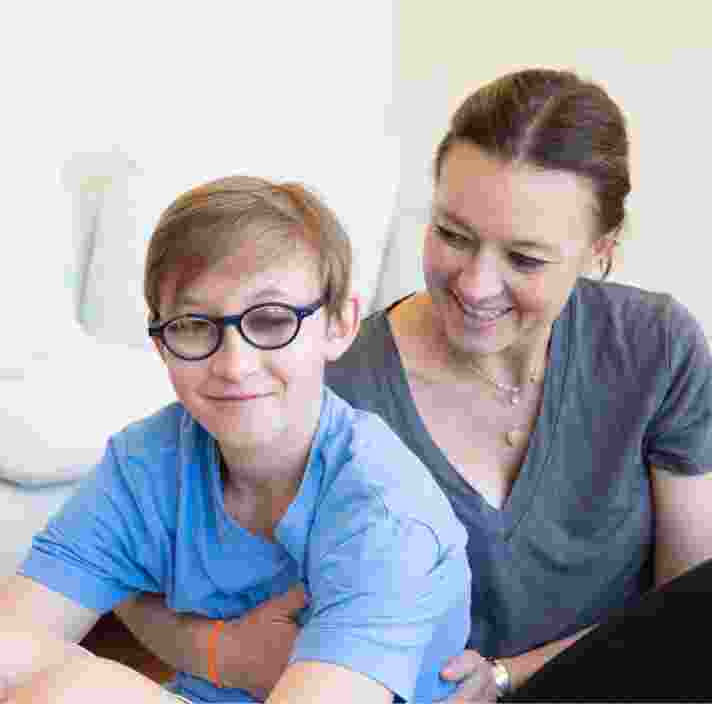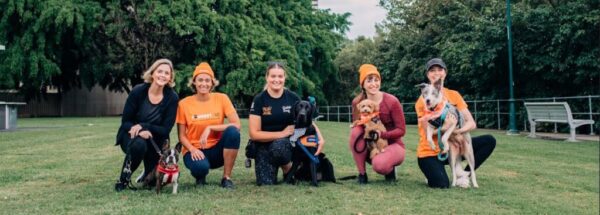What is Orthoptics?
Learn techniques to make the most of your vision level.
Orthoptics is a branch of eye care that focuses on understanding vision conditions and supporting people to achieve their goals without surgery. Depending on your level of vision and what you hope to achieve, an orthoptist can support you in developing skills to:
- Read your favourite books, newspapers, magazines, and other material.
- Read your mail independently and ensure all your sensitive information is kept private.
- Read prices and labels when you’re out shopping.
- Read medications or ingredients on food labels.
- Set up your loungeroom so you can watch TV and movies comfortably.
- Read street signs and public transport timetables.
When should I contact an Orthoptist?
You can benefit from contacting an orthoptist at any time.
You can get in touch with our optometrists for support at any time. They will assist you to identify and work towards your personal goals. However, the following prompts might provide some helpful examples of when an orthoptist’s support may be useful.
- If you are looking for more detailed information about a specific vision condition: orthoptists can provide greater insight into your specific condition, associated treatments, potential benefits or services you can access, details around driving or other daily tasks, and more.
- If you are having trouble reading written text: like personal mail or bills, newspapers, magazines, price tags or labels, or computer screens.
- If you are having trouble writing: including letters, notes, shopping lists, completing crosswords or puzzles, forms, cheques, or signatures.
- If you are having trouble reading or processing information from distance: including signs, traffic signals, train or plane information boards, bus or tram numbers, or PowerPoint presentations at work, school, or uni.
- If you have a heightened sensitivity to glare: whether inside or outdoors.
- If you are having difficulty adjusting to changes in lighting: this can include difficulty seeing at night, in the dark, or in different environments at home, work, or school.
- If you are experiencing challenges in social or recreational situations: including difficulties recognizing faces, watching TV or films, participating in sport, craftwork, theatre, or attending galleries.
About an Orthoptics assessment
Assessing your vision to make the most of what and how you can see.
To understand your level of functional low vision, an Orthoptist will conduct assessments that help to determine:
- What you can see and how best to utilise your remaining vision
- What strategies and low vision aids will best help you with your goals
- What lamp lighting and positioning could help to improve your functional vision
- How best to manage visual fatigue when reading or conducting tasks.
Assessment results help the Orthoptist to recommend the best strategies and/or low vision aids to help you achieve your goals.
An Orthoptic functional vision assessment can also provide family members, friends, carers, or other health professionals with valuable information about a person’s vision. This can be particularly helpful for people who are either very young, non-verbal, or have additional disabilities.
The vision tests can be modified depending on your needs; sometimes assessments can be completed in one appointment, and other times they may require multiple appointments.
Who’s involved in orthoptics support?
A specialist team to support your unique personal goals.
While orthoptist support is highly personalised based on your unique situation, there are some common specialists you might meet along your journey. This includes:
-
Ophthalmologists.
These medical doctors specialise in the diagnosis, treatment, and management of eye conditions. Ophthalmologists may refer people to orthoptists for assessment and additional support. -
Optometrists.
Optometrists are primary healthcare providers who specialise in assessing vision and prescribing corrective lenses. Optometrists are a common source of referral into orthoptists. -
Pediatricians.
Pediatricians are medical doctors who specialise in the care of infants, children, and adolescents. They will sometimes collaborate with orthoptists to support children and young people with eye or vision conditions. -
Occupational therapists.
Occupational Therapists are health professionals who can support you to achieve your goals in everyday life at home, work, or school. From following your favourite recipe or using a computer to doing your makeup, Occupational Therapists ensure you can approach your day with confidence. -
Vision therapists.
Vision therapists are professionals who provide specialised exercises and therapies to improve visual skills and functions. Orthoptists may work with vision therapists to assist you to develop personalised support plans.
Where can I see an Orthoptist?
Orthoptic sessions can take place in various settings, depending on your needs and your geographical location.
This can include:
- In your home
- In dedicated spaces at Guide Dogs Centres
- In education facilities like kindergartens and schools.

Ready to continue?
Seems like you have filled this form earlier. Let’s pick up where you left off.



